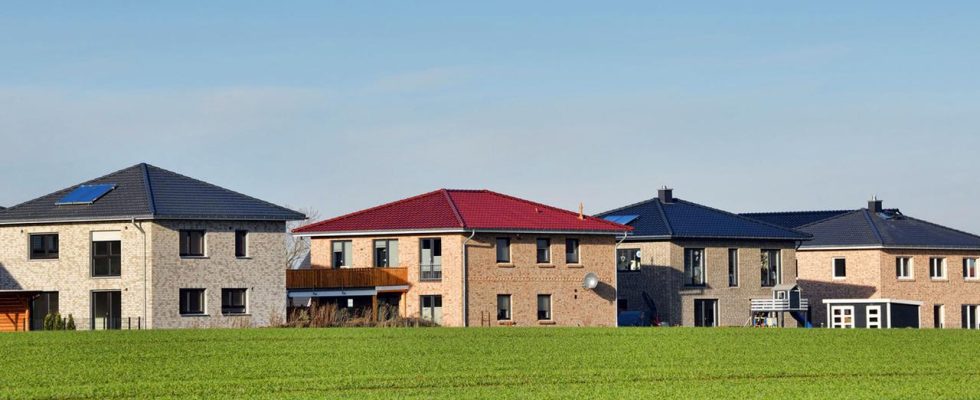In Münster, the construction of detached single-family homes is to be severely restricted. Other cities could join in to create much-needed housing and become more environmentally friendly.
Markus and Sabine Klostermann have fulfilled a dream for themselves and their family: living in a detached house with plenty of space for parents and children. The family has been living in a new development area in Münster for three years.
Before that, they always lived in rented apartments – for them there was no comparison, says the family man: “For me, the attraction of a single-family house is very clear that we can live it out individually. We were able to plan this house completely from the green field.”
away from the detached detached house
This luxury will become rarer for families in Münster in the future, because the city wants to severely limit the construction of detached single-family homes. Gerd Franke is responsible for urban renewal at the city. He thinks that the focus must be placed very clearly on terraced and multi-family houses in order to position the city for the future.
“We do this from a climate and environmental point of view in particular, because a detached single-family house takes up a relatively large amount of space,” says Franke. “But we also got the goal from the council that 2,000 new apartments should be built in Münster every year.”
In order to do that, you simply have to build tighter. For example, Frank calculates that there could be space for 25 detached single-family houses on one hectare of construction area. In the case of semi-detached or terraced houses, it would still be 50 residential units – in the case of four-storey apartment buildings, a whopping 160.
An example for other cities
The detached single-family house has long been the subject of criticism. Because it needs a lot of space, but only offers comparatively few people living space. That is why there are already regulations similar to those in Münster elsewhere in Germany. In Hamburg-Nord, for example, where new single-family homes have not been allowed to be built since 2020. Other cities could follow suit.
Urban planner Dietmar Strick is working on sustainable living for the city of Euskirchen. He also thinks the idea makes sense for the city: “New development areas are almost always designed exclusively for the development of single-family houses. That simply means a huge amount of space is required.”
concreted over in many places in NRW
Those areas just aren’t there. The example of North Rhine-Westphalia shows this well. According to the State Ministry for the Environment, around a quarter of the area is already concreted over with residential buildings, roads and industry. Another eight hectares would be developed every day – an area the size of more than eleven soccer fields.
With apartment buildings you can use the developed new development areas more efficiently, according to city planner Strick. They are also more resource-efficient, because: “You only need a roof, a floor slab, a development, a heating system,” he explains. “All the fixed costs are almost the same – whether I’m building a single-family house or an apartment building. That means I not only need less space, but also less resources and energy and, of course, have lower construction costs.”
criticism of owner associations
Owners’ associations criticize the approach in cities like Münster: “Single-family houses are not built to punish the environment, but because people want to live that way. Because there is a great need, because the space required in narrow cities is not there for the size of the apartments “, argues Werner Fliescher from the association Haus & Grund Rheinland. In his opinion, personal freedom would be restricted too much.
Homeowners and those who want to become one should see things the same way. Because the single-family house with a garden, a lot of privacy and even more space is a real object of longing in Germany and by far the most popular form of living. Not least since the corona pandemic, more and more people want this. There are already 16 million single-family homes in Germany – a record.
Existing houses remain on the market
In Münster, however, the restriction only affects new buildings, emphasizes Gerd Franke. There can therefore be no talk of a ban on single-family homes in general. In Münster, too, two-thirds of the houses are single-family homes, and they remain in circulation. Older people, for example, often move out of their homes, which are then free for families.
Throughout Germany, the number of building permits for single-family homes fell sharply last year. According to the Federal Statistical Office, the building authorities approved 78,100 new single-family homes, 15,800 fewer than in 2021. However, the numbers for residential construction also fell.

